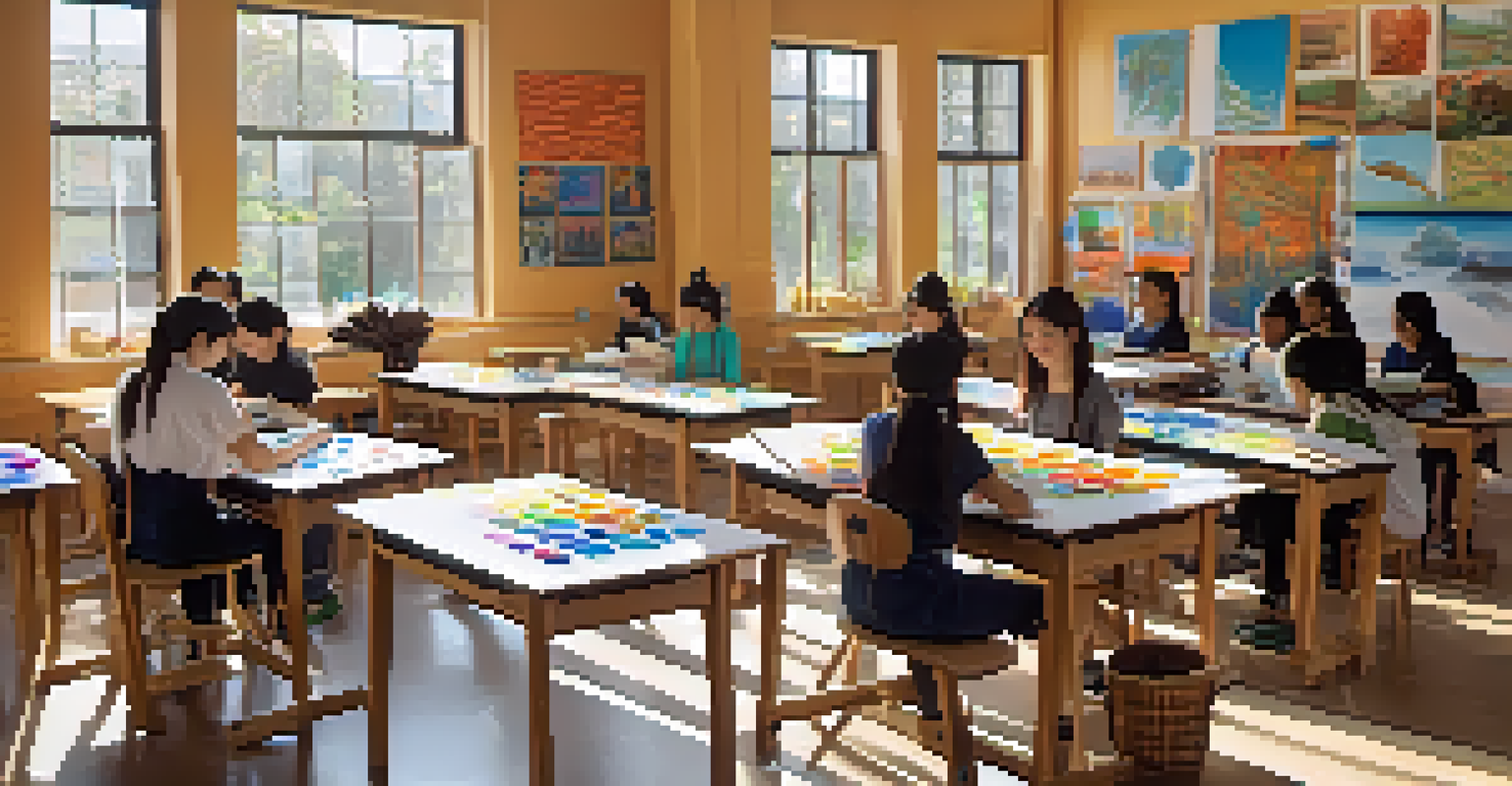Exploring Educational Tourism: A Guide to Learning Journeys

What is Educational Tourism and Why It Matters
Educational tourism combines travel with learning experiences, allowing individuals to immerse themselves in new cultures while gaining knowledge. This form of tourism has gained popularity as people seek to enhance their understanding of different subjects, from history to science. By exploring educational destinations, travelers can engage with local communities and institutions, enriching their overall experience.
Travel is the only thing you buy that makes you richer.
The importance of educational tourism cannot be overstated; it promotes lifelong learning and encourages personal growth. Whether it’s visiting historical sites, attending workshops, or participating in cultural exchanges, each experience fosters a deeper appreciation for the world around us. This form of travel not only broadens our horizons but also nurtures empathy and understanding among diverse populations.
Moreover, educational tourism can also benefit local economies by attracting visitors who are eager to learn. Through the establishment of programs and partnerships between educational institutions and local businesses, communities can thrive while sharing their unique stories and knowledge. In essence, educational tourism creates a win-win scenario for both travelers and hosts.
Types of Educational Tourism Experiences
Educational tourism encompasses a wide range of experiences tailored to various interests. Some popular types include cultural tourism, which focuses on exploring local traditions, arts, and history. Then there’s adventure tourism, where learning comes through outdoor activities like hiking or wildlife conservation projects, merging education with thrilling experiences.

Another category is language immersion, where travelers engage in courses while living in a target language environment. This approach not only helps in acquiring new language skills but also fosters cultural connections with locals. For those passionate about academics, academic tourism offers opportunities to attend lectures, conferences, and workshops at renowned institutions.
Educational Tourism Enhances Learning
This form of tourism combines travel with immersive learning experiences, promoting a deeper understanding of various subjects.
Lastly, volunteer tourism, or 'voluntourism,' allows participants to contribute to community projects while learning about social issues. By combining travel with meaningful work, travelers gain insights into global challenges while making a positive impact. Each type offers unique opportunities for growth and discovery, catering to diverse interests.
Choosing the Right Destination for Learning
Selecting the right destination for educational tourism is crucial to maximize the learning experience. Consider what subjects or skills you want to explore and look for locations that are renowned for those topics. For example, if you’re interested in history, destinations like Rome or Athens offer rich historical contexts filled with ancient landmarks and museums.
The world is a book, and those who do not travel read only one page.
Additionally, think about the type of learning experience you prefer. Do you want structured programs, such as workshops or guided tours, or are you more inclined toward self-directed exploration? Researching local educational institutions, tour providers, and community initiatives can help you find opportunities that align with your preferences and goals.
Lastly, consider factors such as accessibility, budget, and cultural openness. Some destinations may be more welcoming to international travelers, offering programs designed for visitors. By taking these aspects into account, you can select a destination that not only enriches your knowledge but also provides a memorable experience.
Planning Your Educational Journey
Planning your educational journey requires thoughtful consideration to ensure a fulfilling experience. Start by setting clear goals for what you hope to learn or achieve during your travels. This initial step will guide your research and help you select the right programs or activities that align with your interests.
Next, create a detailed itinerary that balances structured learning with free time for exploration. While it’s essential to participate in educational activities, allowing time for informal learning through interactions with locals can be equally enriching. This blend of planned and spontaneous experiences often leads to the most memorable outcomes.
Diverse Experiences for All Interests
Educational tourism offers a variety of experiences, including cultural exchanges, academic events, and volunteer opportunities.
Finally, don’t forget to prepare for cultural differences and local customs. Understanding the etiquette and norms of your destination can enhance interactions and deepen your appreciation for the culture. By embracing flexibility and an open mind, you’ll not only enrich your journey but also foster meaningful connections along the way.
The Role of Technology in Educational Tourism
In today’s digital age, technology plays a significant role in enhancing educational tourism experiences. From virtual reality tours that allow you to explore historical sites from your home to mobile apps that provide real-time translations, technology makes learning accessible and engaging. These tools can bridge the gap between travelers and educational content, making information more digestible.
Moreover, online platforms offer a plethora of resources for planning and booking educational trips. Websites and apps can connect travelers with local educators, workshops, and cultural experiences, simplifying the process of finding the right opportunities. This ease of access empowers travelers to customize their journeys according to their learning preferences.
However, while technology can enhance the experience, it’s essential to strike a balance. Engaging with locals and immersing oneself in the environment is irreplaceable. By leveraging technology wisely, travelers can enrich their educational journeys without losing the authentic, human connections that make travel truly special.
Benefits of Educational Tourism for Personal Growth
Educational tourism offers numerous benefits that extend beyond just acquiring knowledge. One major advantage is the opportunity for personal growth; stepping outside your comfort zone and experiencing new cultures fosters adaptability and resilience. This process of navigating unfamiliar environments teaches valuable life skills that can be applied in various aspects of life.
Additionally, educational tourism often leads to enhanced critical thinking and problem-solving skills. Engaging with different perspectives and tackling new challenges cultivates a mindset that values inquiry and creativity. These skills are not only beneficial during travel but also in academic and professional pursuits.
Personal Growth Through Travel
Educational tourism fosters personal growth by encouraging adaptability, critical thinking, and a sense of global citizenship.
Lastly, educational tourism can deepen your sense of global citizenship. By understanding diverse cultures and issues, travelers often return home with a newfound appreciation for the interconnectedness of our world. This awareness can inspire individuals to become advocates for change, fostering a desire to contribute positively to society.
Making the Most of Your Educational Travel Experience
To truly make the most of your educational travel experience, approach each activity with curiosity and an open mind. Engage actively in discussions, ask questions, and seek out opportunities to connect with locals. This mindset not only enriches your understanding but also creates memorable interactions that enhance your journey.
Documenting your experiences can also be incredibly rewarding. Whether through journaling, photography, or blogging, capturing your thoughts and reflections allows you to process what you’ve learned. These records can serve as valuable reminders of your journey and inspire you to apply your newfound knowledge in everyday life.

Finally, consider sharing your experiences with others. Whether through social media, presentations, or community events, sharing what you’ve learned can inspire others to embark on their educational journeys. By fostering a culture of learning and curiosity, you contribute to a broader understanding of the importance of educational tourism.